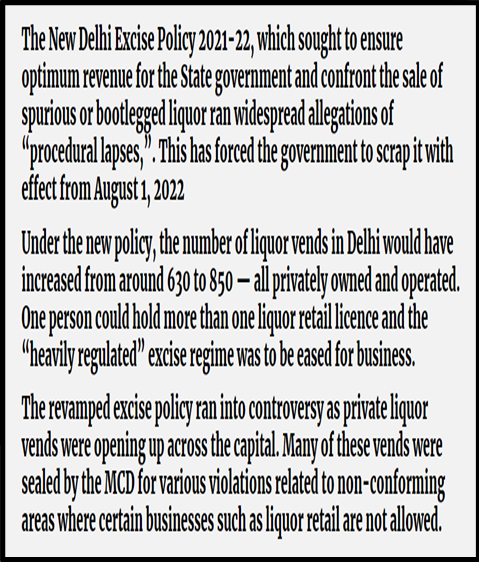KEJRIWAL SENT TO JUDICIAL CUSTODY FOR TWO WEEKS IN DELHI EXCISE POLICY CASE
Why in the news?
Delhi CM Arvind Kejriwal receives 14-day judicial custody for alleged money laundering in the excise policy case. Political controversy ensues.
source:wordpress
Highlights of the Judicial Custody Order:
- AAP leader and Delhi CM Arvind Kejriwal received a 14-day judicial custody sentence in a money laundering case related to the excise policy.
- Enforcement Directorate (ED) accused Kejriwal of evasive responses and concealing information during interrogation.
- ED argued that Kejriwal’s influence might tamper with evidence and sway witnesses.
- Kejriwal allegedly failed to explain connections with co-accused Vijay Nair, linking him to other AAP leaders.
| About Enforcement Directorate (ED):
● Investigates money laundering offences and foreign exchange law violations. ● Operates under the Department of Revenue, Ministry of Finance, India. ● Functions within legal framework and Constitution of India. Structure: ● Headquarters: New Delhi; led by Director of Enforcement. ● Five regional offices: Mumbai, Chennai, Chandigarh, Kolkata, and Delhi; headed by Special Directors of Enforcement. ● Officers recruited directly or from other investigative agencies like IRS, IPS, and IAS. ● Tenure:Two years, extendable up to five years with annual extensions. Functions: ● COFEPOSA: Empowered to sponsor preventive detention cases under COFEPOSA Act, 1974. ● FEMA: Enacted to regulate foreign exchange in India, ED investigates contraventions and imposes penalties. ● PMLA: Executes provisions of PMLA, traces assets from proceeds of crime, attaches property, and ensures prosecution of offenders. |





